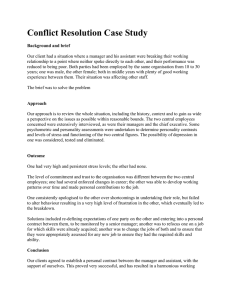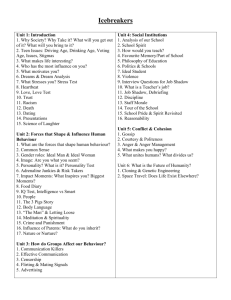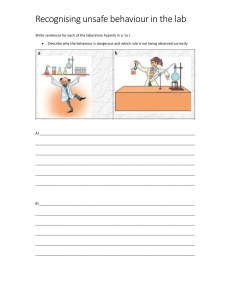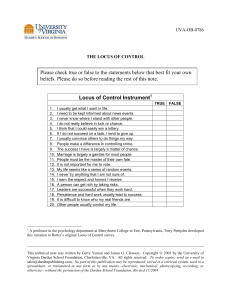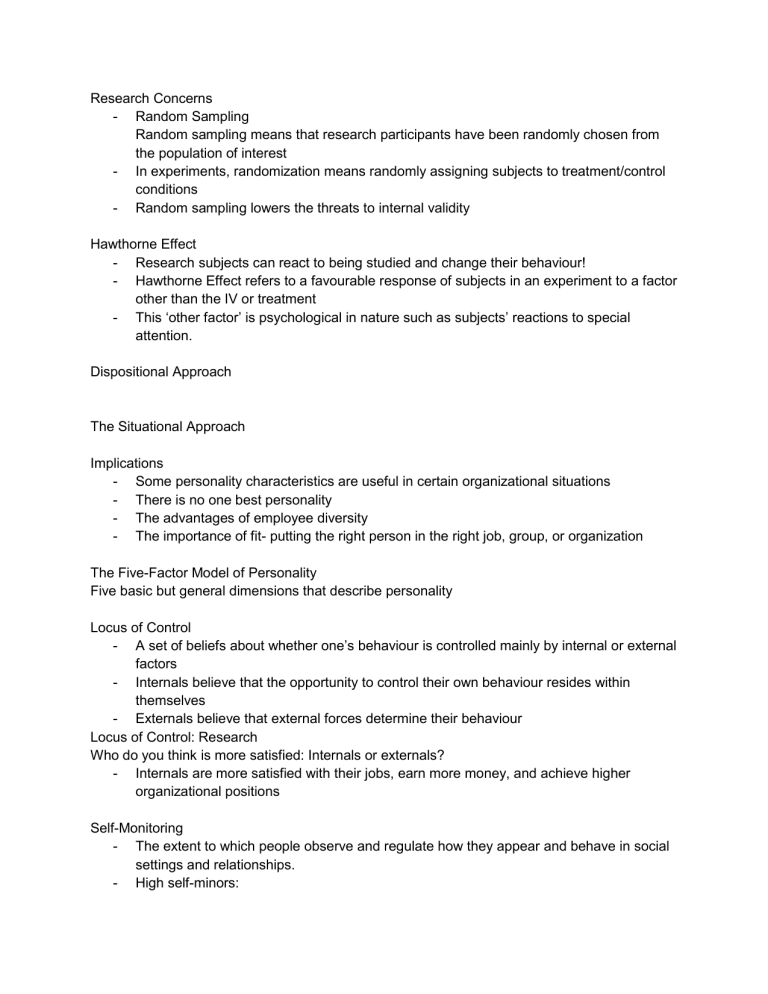
Research Concerns - Random Sampling Random sampling means that research participants have been randomly chosen from the population of interest - In experiments, randomization means randomly assigning subjects to treatment/control conditions - Random sampling lowers the threats to internal validity Hawthorne Effect - Research subjects can react to being studied and change their behaviour! - Hawthorne Effect refers to a favourable response of subjects in an experiment to a factor other than the IV or treatment - This ‘other factor’ is psychological in nature such as subjects’ reactions to special attention. Dispositional Approach The Situational Approach Implications - Some personality characteristics are useful in certain organizational situations - There is no one best personality - The advantages of employee diversity - The importance of fit- putting the right person in the right job, group, or organization The Five-Factor Model of Personality Five basic but general dimensions that describe personality Locus of Control - A set of beliefs about whether one’s behaviour is controlled mainly by internal or external factors - Internals believe that the opportunity to control their own behaviour resides within themselves - Externals believe that external forces determine their behaviour Locus of Control: Research Who do you think is more satisfied: Internals or externals? - Internals are more satisfied with their jobs, earn more money, and achieve higher organizational positions Self-Monitoring - The extent to which people observe and regulate how they appear and behave in social settings and relationships. - High self-minors: - Take great care to observe and control High self monitors are: - More involved in their jobs, perform better, and are more likely to emerge as leaders Self-Esteem - The degree to which a person has a positive self evaluation - People with high self esteem have favourable self images - People with low self esteem have unfavourable self images
